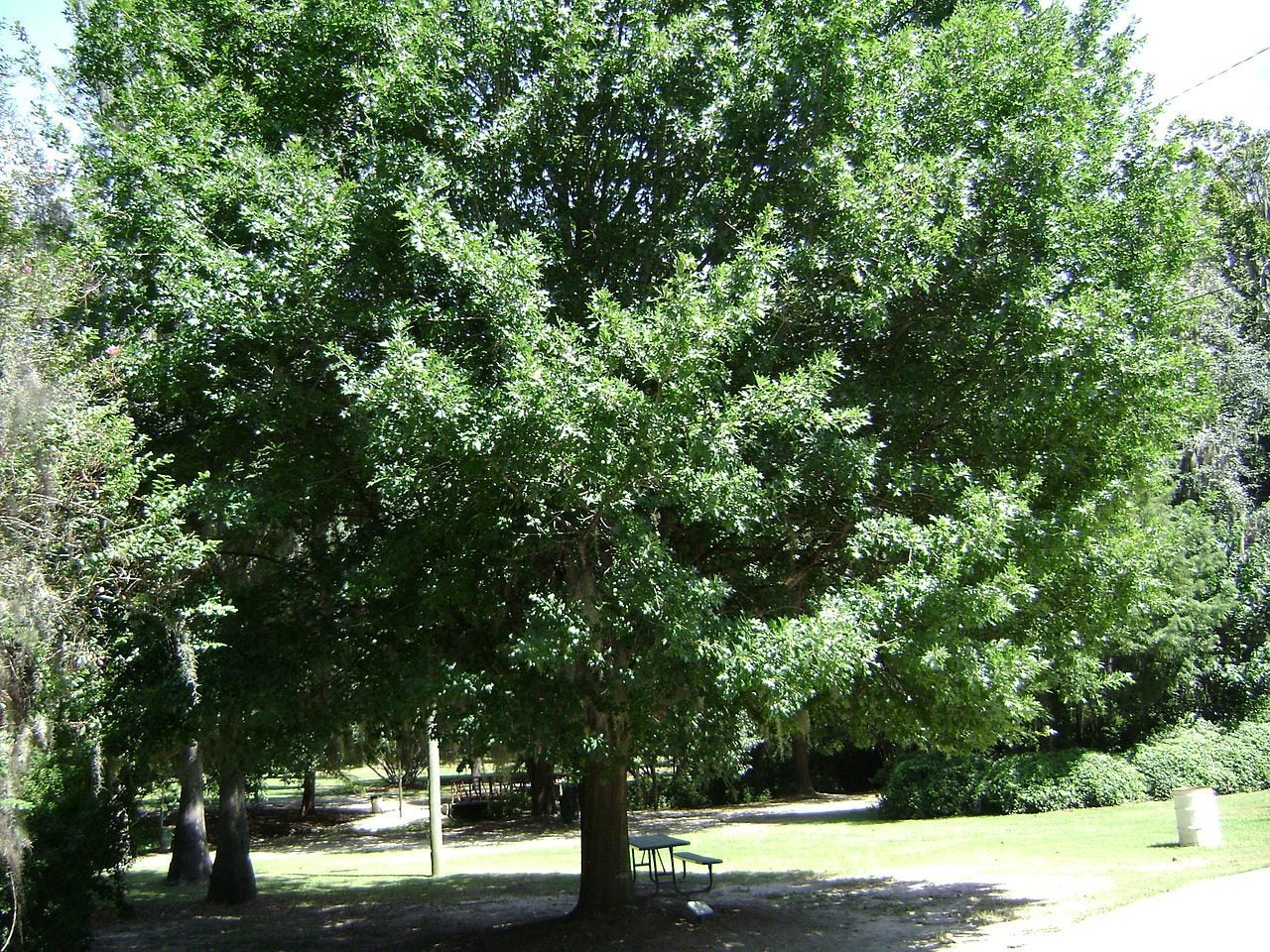Nuttall Oak Information – Tips For Nuttall Oak Tree Care


Many gardeners are not familiar with nuttall oak trees (Quercus nuttallii). What is a nuttall oak? It is a tall deciduous tree native to this country. For more nuttall oak information, including tips on how to grow a nuttall oak, read on.
Nuttall Oak Information
These trees are in the red oak family. They grow to 60 feet (18 m.) tall and 45 feet (14 m.) wide. As native trees, they require minimal nuttall oak tree care. Vigorous and strong, nuttall oaks grow in a pyramidal form. They later mature into a round-canopied tree. The tree’s upper branches tip upward, while lower limbs grow straight out horizontally without drooping. Like most oak trees, a nuttall oak has lobed leaves, but they are smaller than the leaves of many oaks. Nuttall oak information suggests that the leaves grow in red or maroon, then mature into deep green. In autumn, they turn red once again before falling to the ground in winter. You can identify this tree best by its unique acorn. It is about one inch (2.5 cm.) long and almost as wide. The acorns are plentiful and brown with caps that cover almost half of the acorn base. Squirrels and other mammals eat the acorns.
How to Grow a Nuttall Oak
Growing nuttall oak trees is a good idea for gardeners desiring tall shade trees. The species thrives in USDA plant hardiness zones 5 through 9, and in those regions, the trees won’t need much nuttall oak care. The first step in growing this tree is to locate a large enough site. Take into account the tree’s mature size. It can grow to 80 feet (24 m.) tall and 50 (15 m.) feet wide. Don’t plan on growing nuttall oak trees in small garden areas. In fact, these tall, easy-care trees are often planted in large parking lot islands, buffer strips around parking lots, or in highway median-strips. Plant the acorns or seedlings in garden areas that get full sun. Soil type is less important, as these native trees tolerate wet or dry soil. They do, however, grow best in acidic soil.
Sign up for the Gardening Know How newsletter today and receive a free copy of our e-book "How to Grow Delicious Tomatoes".

Teo Spengler is a master gardener and a docent at the San Francisco Botanical Garden, where she hosts public tours. She has studied horticulture and written about nature, trees, plants, and gardening for more than two decades, following a career as an attorney and legal writer. Her extended family includes some 30 houseplants and hundreds of outdoor plants, including 250 trees, which are her main passion. Spengler currently splits her life between San Francisco and the French Basque Country, though she was raised in Alaska, giving her experience of gardening in a range of climates.